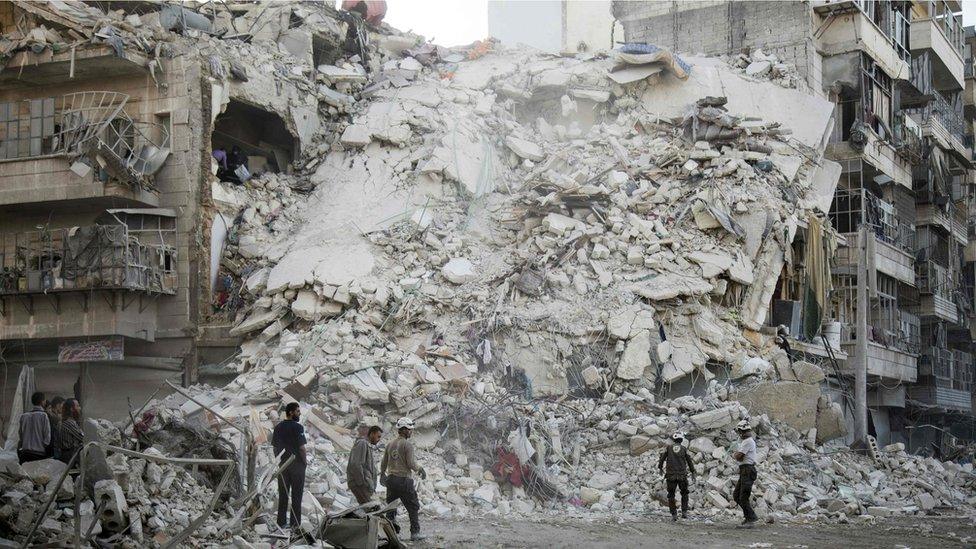Raqqa offensive raises local and regional problems for US
- Published
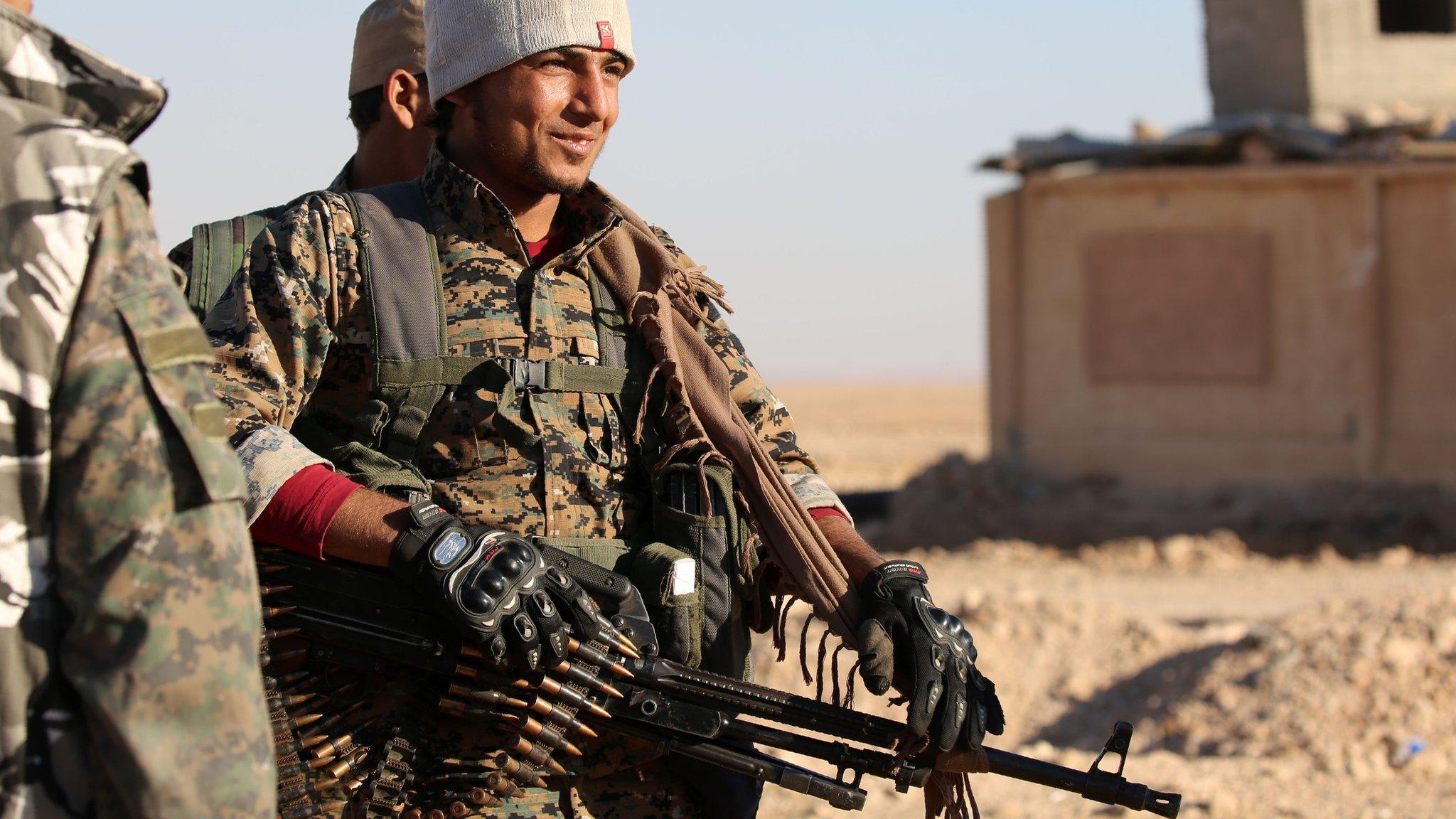
The Raqqa offensive will be led, at least initially, by a Kurdish-dominated militia force
With the offensive against Mosul in Iraq gaining momentum, US officials have signalled strongly that the start of the operation to retake the Syrian city of Raqqa from so-called Islamic State would follow close behind.
That operation is now under way, with US Defence Secretary Ash Carter noting on Sunday that "the effort to isolate and ultimately liberate Raqqa marks the next step in our coalition campaign plan".
But the Raqqa offensive, with its reliance upon largely Kurdish forces - in at least the initial phase - raises all sorts of local and regional problems, not least with Turkey.
It is not just the composition of the attacking force but its size that may be a factor. It is still far from clear whether sufficient troops have yet been mustered to carry out this task.

Moving swiftly against Raqqa makes strategic sense.
It is the de facto capital of the caliphate proclaimed by IS, and striking against both Raqqa and Mosul at the same time complicates the group's operational planning; pins it onto the defensive; and potentially reduces the spill-over as IS fighters - especially foreign jihadists - seek to make good their escape.
The US claims to have intelligence suggesting that overseas attacks are being planned in Raqqa. Thus isolating the city and sealing off escape routes will be the initial operational goal.
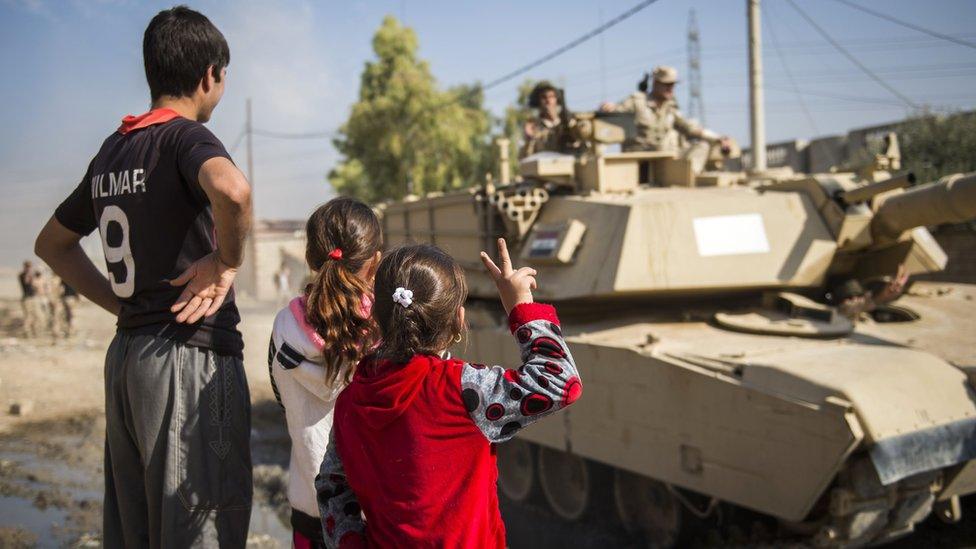
The offensive on Mosul is being assisted by US military advisers, special forces and air strikes
But Raqqa is not Mosul.
Many of the benefits that the US and its coalition partners have enjoyed in Iraq are not present in Syria.
For all the problems facing Baghdad, there is at least a recognised government in the country.
The US has lavished time and money to re-build Iraq's military.
And while a motley collection of different armed groups are engaged in the offensive against Mosul, the US probably has sufficient advisers and special forces on the ground to co-ordinate between them and to try to ensure that they do not come into conflict.
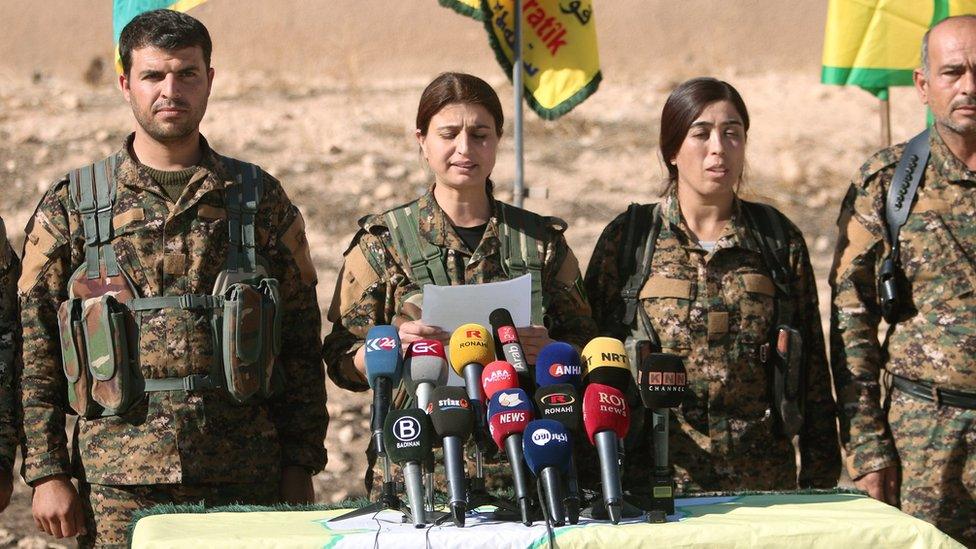
It was announced by Syria Democratic Forces commanders on Sunday
Syria is totally different.
In launching the operation against Raqqa now, the US has admitted that it has to go with the most capable units that are available and that is the so-called Syria Democratic Forces (SDF).
This is a Kurdish and Arab militia force that has been gaining ground north of Raqqa.
But it is dominated by fighters from the Kurdish Popular Protection Units (YPG), who comprise about 25,000 of the 30,000-strong force according to some estimates.
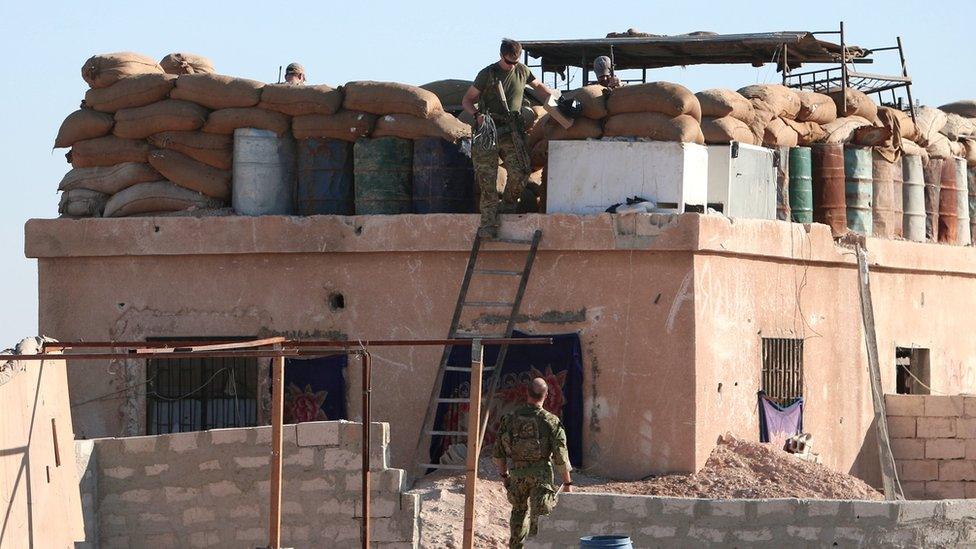
More than 300 US special forces personnel are in Syria to advise the SDF
For Turkey, which has already pushed its own troops and tanks across the Syrian border, a central role for the YPG is anathema.
Ankara and Washington differ fundamentally on the role of the largely Kurdish SDF and on the timing of the Raqqa operation itself; the Turks preferring that it be delayed until sufficient Arab fighters are available.
Indeed the Turks, who along with Syrian Arab rebel fighters, now occupy a 25km (15-mile) deep stretch of territory inside northern Syria, have called for their troops to play a role in the assault on Raqqa.
The Turks have already come into conflict with Kurdish fighters presenting the US with a major problem of coalition management - hence the ongoing debate in Washington about just how many US troops are needed on the ground.
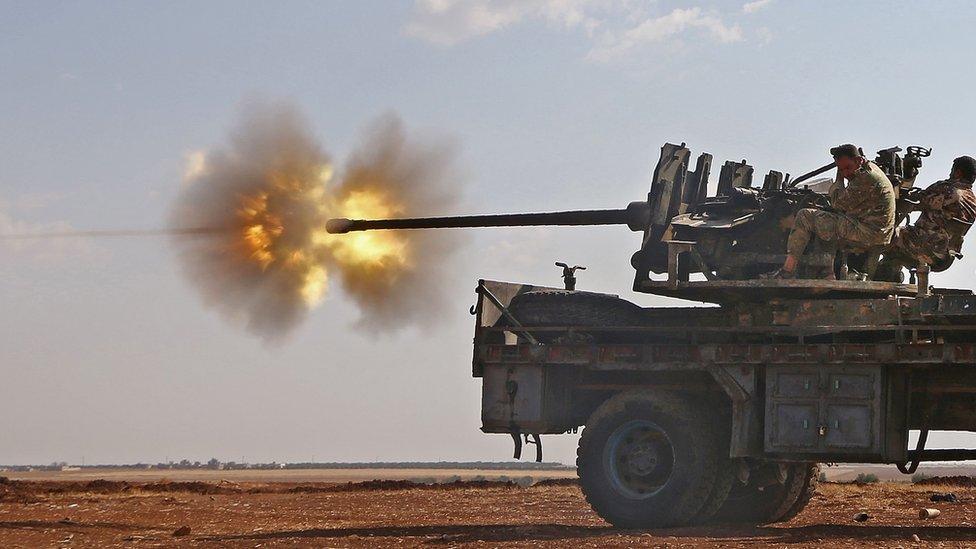
Turkish-backed Syrian rebel fighters have made gains in northern Syria since August
There has also been an ongoing debate about the US supplying the Kurds with additional heavy weaponry - a plan that seems to have been shelved for now - given the sensitivities of the Turks.
The US has been stepping up its efforts to recruit and train more Arab fighters, seen as vital for the later stages of any operation to secure Raqqa, which has a largely Arab population.
But these recruitment efforts have foundered in the past and all of the forces so far mustered lack the logistical back-up and depth of support of the Iraqi forces attacking Mosul.
So the focus of the Raqqa operation will be on isolating the city with the timing of a later assault phase dependent upon putting sufficient Arab forces in the field; a possible deal with the Turks; and the likely deployment of more US troops to coordinate the whole operation.
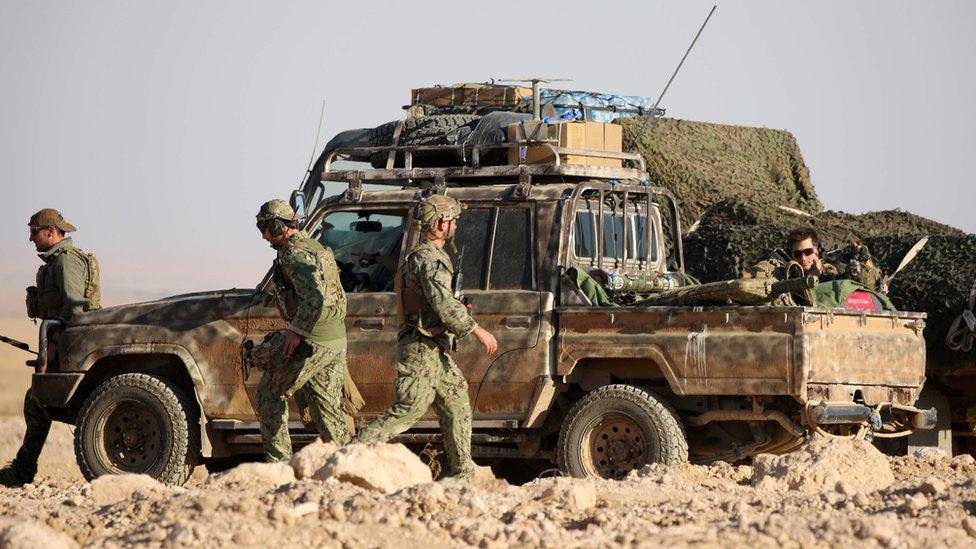
US special forces aim to help recruit, train and equip local forces in and around Raqqa
But the operation also lacks a political perspective.
In Mosul, for all the ethnic and sectarian rivalries the goal is to bring the city back under the broad authority of the Baghdad government, though local forces will ultimately be in control of the city.
In Syria there is no broadly accepted national government and the US-led struggle against IS is only one battle in a broader cross-cutting struggle involving IS, Syrian rebel forces, the Assad government, Iran, Turkey and Russia.
The eventual capture of Raqqa will serve as a major defeat for IS and its dreams of a caliphate.
But what it might represent for the future of Syria remains uncertain.
- Published18 October 2016
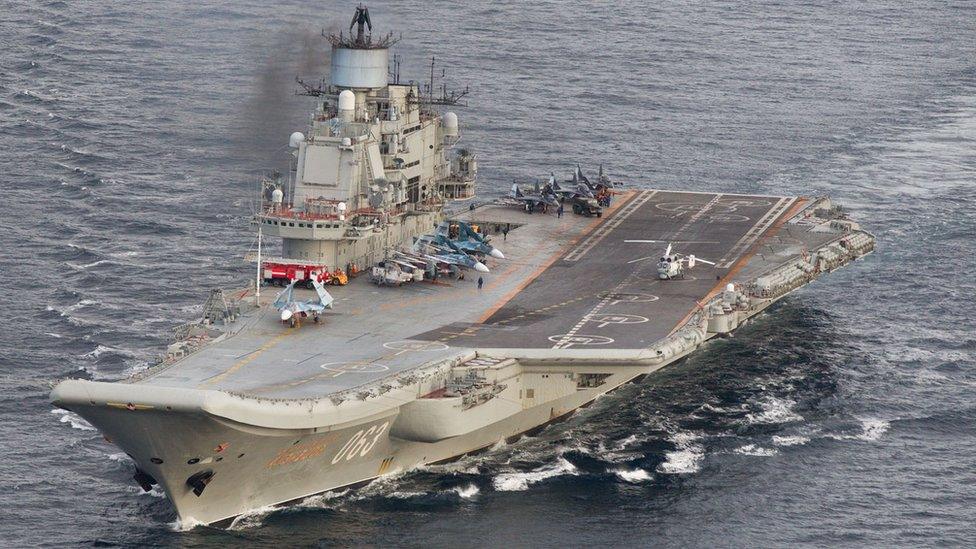
- Published17 October 2016
- Published18 October 2016
